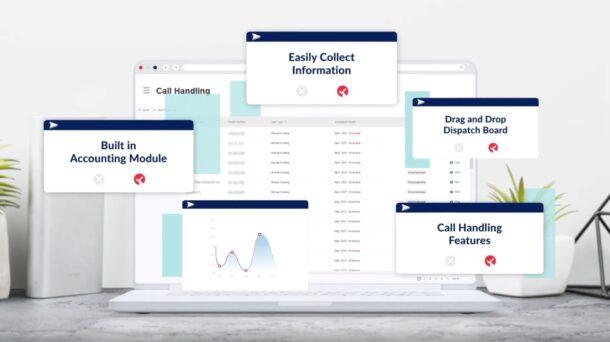Chris O’Grady, Chief Sales Officer, Successware
Small business owners run into a slew of challenges every day, from customer service to accounting to managing the massive skilled labor shortage. Those in the home service trades are certainly familiar with these issues, as well as others that are unique to their industry. While many are daily roadblocks that become business as usual, there are a few key issues related to business management software that fortunately can be easily improved upon. Addressing the following and embracing new tools will help you decrease overhead expenses and increase efficiencies by two to five times.
Issue #1: Trying to Integrate Multiple Software Packages Not Made for Our Industry, Combined with Poor Customer Service
If you have a big chunk of your expenses going towards multiple software packages, this is an area you’ll want to consider trimming. Many companies take an à la carte approach, choosing a business and field management system and then adding on a separate accounting package, dispatch system, call handling software, and more. They not only have to hire people with additional skill sets who know how to use the different systems, but they also end up duplicating efforts and data.
The right software should be designed specifically for your industry and be a one-stop shop for handling all of your small business’s needs. With the right platform, you won’t have to pay for extra software packages needed to run your business. This will then free up money for revenue-generating tasks.
You also want to choose a provider that offers a dedicated account manager, so you’re never left feeling like just another number. They should be a key resource for you and your employees, not someone you have to chase down for help or who doesn’t understand your industry. Good customer service is crucial during implementation of a new platform and beyond and can make or break how successful your company is with a new system.

Issue #2: Poor Data Quality from Duplicate Data Entry
Running different aspects of your business on multiple software packages means entering the same duplicate information into each system. This puts your data at risk for discrepancies and human error. Again, one platform will eliminate the confusion.
Additionally, data that lives in multiple places is harder to analyze. When service and job history data live in the same place as your financials, it is then possible to create detailed reports on the health of your business with all sorts of metrics at your fingertips.
You also increase your efficiencies when everything is consolidated in one place. You’ll see and feel the difference when you save travel time with smarter dispatching, can quickly access customer information and get paid faster in the field with digital payments.
Issue #3: Poor Connectivity in the Field
Having a team out in the field also means you need a reliable way to exchange information between them and the home office. With the right mobile application, the flow of information between dispatchers and technicians will be cohesive. Data can be entered from the job site and come right back into your back-office platform.
Features and tools in a well-designed mobile system can solve a lot of in-the-field issues for the home service trades. Think digital forms to eliminate cumbersome and costly paper forms, remote timecard management and integrated consumer financing that allows customers to get on-the-spot financing.
With the right field service management software and back-office platform, you can go from needing one admin to handle every two field reps to one admin that can handle up to four. Meaning you are not only becoming more efficient but can scale and grow your business like you may not have been able to before.
What Do These Issues Mean for You?
If the issues detailed above hit home, you are likely overspending on your overhead expenses by paying for multiple software packages. This also means your business isn’t running as efficiently as it could be. Taking a streamlined approach will eliminate some of these common industry issues and provide your team with features and tools that help your business stand out with your customers, your team and prospective employees.
 Chris O’Grady has been in sales for 30 years, focusing on software sales for the last 20. Chris has been leading and growing sales teams for most of his career, with his most recent positions at FinancialForce and CBORD, where he led high-performing sales teams and was able to help drive tremendous growth for each company. In April 2022, Chris joined Successware as the Chief Sales Officer. He brought with him a proven history of business growth and increased sales performance. In his current role, Chris leads sales, sales operations, and customer success and is responsible for driving sales strategy.
Chris O’Grady has been in sales for 30 years, focusing on software sales for the last 20. Chris has been leading and growing sales teams for most of his career, with his most recent positions at FinancialForce and CBORD, where he led high-performing sales teams and was able to help drive tremendous growth for each company. In April 2022, Chris joined Successware as the Chief Sales Officer. He brought with him a proven history of business growth and increased sales performance. In his current role, Chris leads sales, sales operations, and customer success and is responsible for driving sales strategy.




Join the conversation: